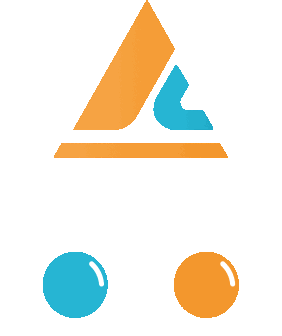
Close

BCoder Castle – Best Software App & Web Design Development Company 2023

In the dynamic realm of health app development, where innovation intersects with wellness, the role of health app developers has become increasingly pivotal. As the demand for groundbreaking healthcare app development services grows, developers are pushing the boundaries of what health apps can achieve. One remarkable aspect of this evolution is the transformation of fitness tracking from simple step counting to comprehensive health monitoring.
In this blog entry, we’ll investigate the most recent patterns and headways in wellness following inside wellbeing applications, revealing insight into how the business is embracing innovation to upgrade client experience and generally speaking prosperity.
Fitness tracking has come a long way since the days of basic pedometers. As per late industry reports, the worldwide wellness application market is projected to arrive at a faltering $14.7 billion by 2026, with a build yearly development rate (CAGR) of more than 21% from 2021 to 2026. This substantial growth is indicative of the increasing awareness and adoption of fitness tracking apps by users worldwide.
The early fitness apps focused primarily on step counting, providing users with a basic measure of their daily physical activity. However, today health app developers are extending their viewpoints, incorporating a different scope of measurements to offer a more all encompassing perspective on a singular’s wellbeing.
Heart Rate Monitoring: One significant trend is the incorporation of heart rate monitoring into fitness apps. This component permits clients to follow their pulse progressively during different exercises, giving important experiences into cardiovascular wellbeing. Ongoing examinations have shown that normal pulse checking can help with early discovery of potential heart issues, making it a significant expansion to wellness following applications.
Sleep Tracking: Recognizing the importance of sleep in overall well-being, health app developers are increasingly incorporating sleep tracking features. These apps analyze sleep patterns, providing users with insights into their sleep quality and duration. This trend aligns with the growing awareness of the impact of sleep on physical and mental health.
Calorie Tracking and Nutritional Insights: Going beyond physical activity, modern fitness apps now offer calorie tracking and nutritional insights. Users can log their meals and receive feedback on their nutritional intake, promoting a more comprehensive approach to health and fitness. This feature is particularly valuable for individuals with specific dietary goals or health conditions.
Personalization and User-Centric Approaches:
One key strategy employed by health app developers in this evolution is the emphasis on personalization. Recognizing that each individual has unique health goals and preferences, developers are integrating AI algorithms to tailor app experiences to the specific needs of users.
AI-Powered Personalized Recommendations: Using machine learning algorithms, fitness apps can analyze user data to offer personalized workout routines, nutrition plans, and wellness tips. This level of personalization enhances user engagement and motivation, contributing to the overall effectiveness of the app in supporting individuals on their health journeys.
While the evolution of fitness tracking in health apps presents exciting opportunities, it also brings forth challenges that health app developers must navigate. One significant challenge is ensuring the accuracy and reliability of the data collected by these apps. Users rely on the information provided by fitness apps to make informed decisions about their health, making data accuracy a critical consideration for developers.
To address this challenge, leading healthcare app development services are investing in advanced sensor technologies and continuous validation processes. By utilizing cutting edge sensors, engineers can upgrade the accuracy of wellness following measurements, giving clients dependable and noteworthy experiences.
Looking ahead, the future of fitness tracking in health apps holds promise, with the integration of emerging technologies poised to further revolutionize the industry.
Augmented Reality (AR) Fitness Experiences: Some health app developers are exploring the integration of augmented reality (AR) to create immersive fitness experiences. AR can overlay digital information onto the real world, allowing users to engage in interactive and dynamic workouts. This trend aligns with the broader adoption of AR in various industries and showcases its potential to elevate fitness routines.
Wearable Devices and Seamless Integration: The synergy between fitness apps and wearable devices is another trend shaping the future of fitness tracking. With the ascent of smartwatches and wellness trackers, clients can consistently coordinate their wellbeing information into wellness applications, giving an exhaustive outline of their prosperity. This integration fosters a connected ecosystem where users can monitor their health in real-time.
To provide a comprehensive view of the evolving landscape of fitness tracking, let’s explore additional trends that are shaping the industry:
Gamification has emerged as a powerful tool in encouraging user engagement. Health app developers are incorporating game-like elements, challenges, and rewards to make fitness activities more enjoyable and motivating.
Recognizing the impact of social connections on motivation, some fitness apps are integrating social features. Users can connect with friends, join virtual fitness challenges, and share their achievements, fostering a sense of community and support.
In acknowledgment of the interconnectedness of physical and mental well-being, modern fitness apps are incorporating stress tracking and mental wellness features. These functionalities provide users with insights into their stress levels and offer mindfulness exercises to promote mental health.
In conclusion, the evolution of fitness tracking in health apps represents a transformative journey driven by the creativity and ingenuity of health app developers. As these developers continue to push the boundaries, users can anticipate a future where fitness tracking goes beyond mere step counting, offering a comprehensive and personalized approach to health and wellness. The fusion of advanced technologies, personalized experiences, and a commitment to data accuracy positions health apps as powerful tools in empowering individuals to lead healthier lives. The journey towards holistic well-being continues, guided by the vision and expertise of health app developers dedicated to shaping the future of healthcare.

